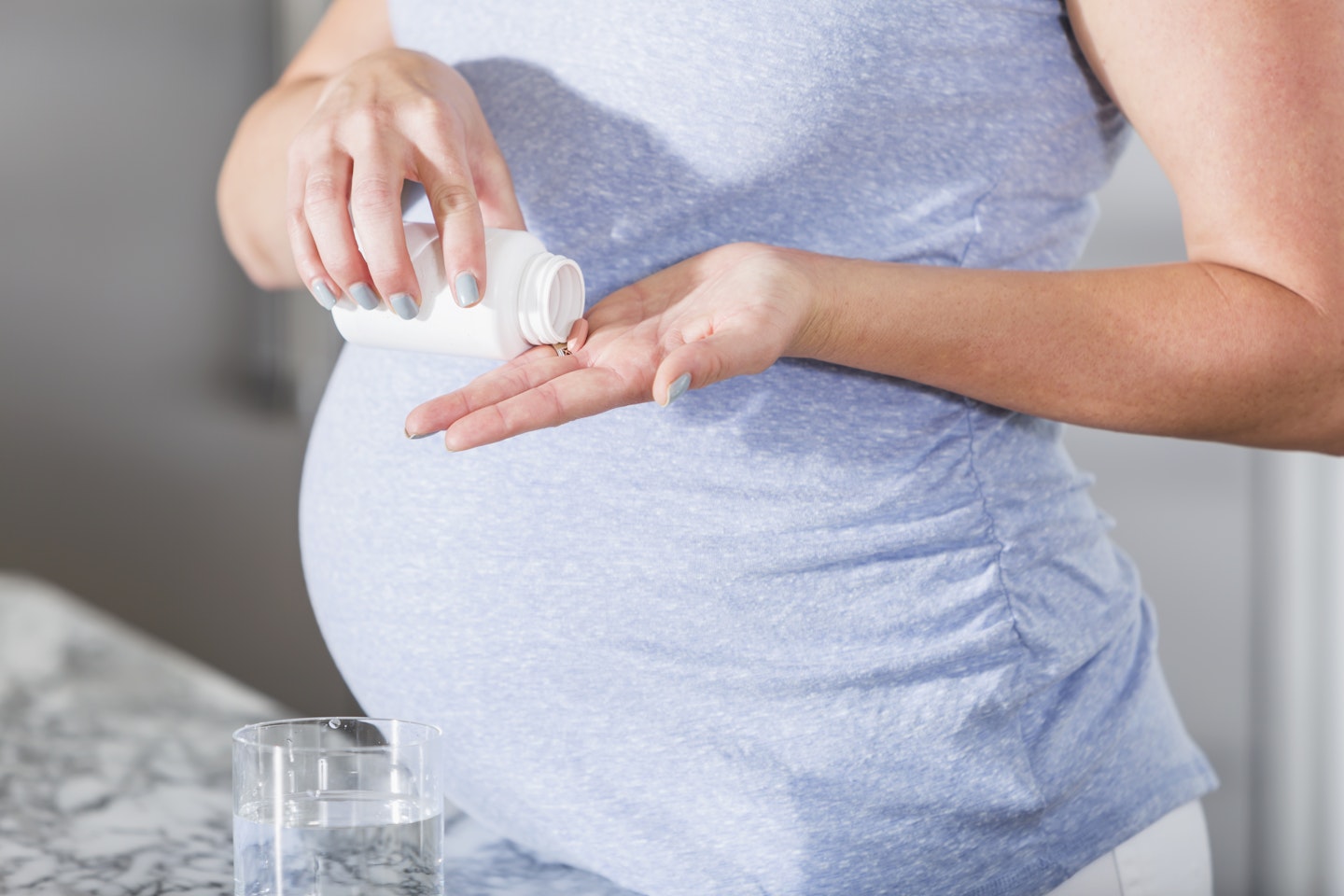While pregnancy can be a wonderful time, there's no denying that your body goes through a lot of changes and that can lead to inevitable aches and pains. But at a time when you're probably being extra careful about what you put in your body, you might be wondering what painkillers you can take and if aspirin is safe when pregnant.
We've spoken to Midwife Pip, MSc BSc to find out everything you need to know about being pregnant and aspirin use, including whether pregnant women can take aspirin, what the side effects are of taking aspirin in pregnancy, and whether you can take aspirin when breastfeeding.
Is aspirin safe when pregnant?
First things first, can you take aspirin when pregnant? Midwife Pip tells us that "in most cases, low-dose aspirin (usually 75-150 mg daily) is considered safe during pregnancy and is often recommended for women at risk of pre-eclampsia or other complications."
However, she notes that high-dose aspirin is generally not recommended, especially in the third trimester. This is because it can increase the risk of complications like bleeding and heart or lung problems in the baby.

What are the side effects of taking aspirin in pregnancy?
While low-dose aspirin is usually safe, potential side effects of higher doses or long-term use include:
• Increased risk of bleeding (for both mother and baby)
• Possible effects on fetal development (especially in high doses)
• Premature closure of a baby’s ductus arteriosus (an important blood vessel in the heart)
• Delayed labour or increased risk of complications during birth
Midwife Pip says, "If you accidentally took aspirin while pregnant and it's just one or two doses, don’t panic; a single dose is unlikely to cause harm. However, it’s always best to check with your doctor or midwife for reassurance and guidance, especially if you took a higher dose. If you’ve been regularly taking aspirin without medical advice, let your healthcare provider know so they can assess any risks and advise on the next steps."
Pain relief alternatives to Aspirin
If you generally use aspirin for pain relief, consider using an alternative which is considered to be safer for pregnant women, such as low-dose paracetamol. Paracetamol is one of the most common forms of pain relief and is a recommended alternative to aspirin.
Pip explains that for pain relief during pregnancy, "Paracetamol is the safest option when taken at the recommended dose. If stronger pain relief is needed, consult your doctor for alternatives. Avoid Ibuprofen and other NSAIDs in pregnancy as these can cause kidney issues in developing babies."
However, as with everything, consult with a health professional first.

When can you take Aspirin if you're pregnant?
There are certainly times when you might be pregnant and aspirin has been recommended. For instance, aspirin might be recommended for a pregnant woman who has experienced or is experiencing the following:
• Recurrent pregnancy loss
• Clotting disorders
However, in these cases, aspirin would need to be prescribed by a doctor, so it's still best to avoid aspirin if you're pregnant and your doctor hasn't recommended it.
Aspirin and Pre-eclampsia
According to the NHS, pre-eclampsia is a condition that affects some pregnant women, usually from 20 weeks or shortly after birth**.** Pre-eclamptic women tend to suffer from swelling in areas including their feet, legs, and hands, and also have more protein in their urine.
Midwife Pip explains that low-dose aspirin is often recommended for women at risk of pre-eclampsia. "It helps improve blood flow to the placenta and reduces the risk of complications and doctors may advise taking it from around 12 weeks of pregnancy until 36 weeks or as directed. If you’re at risk (e.g., due to high blood pressure, diabetes, or previous pre-eclampsia), your healthcare provider will guide you on the safest approach."
Breastfeeding and Aspirin

Low-dose aspirin is generally considered safe while breastfeeding, as only a small amount passes into breast milk. However, high doses are not recommended because they could increase the risk of Reye’s syndrome (a rare but serious condition) in infants. Always consult a doctor before taking aspirin while breastfeeding.
About the expert
Midwife Pip is a truly passionate midwife and advocate for the profession, bursting with knowledge. Pip is an experienced, practicing Midwifery Sister, MSc graduate, founder of Midwife Pip Podcast, Hypnobirthing and Antenatal Educator, co-author of published research and very importantly, a mum.
About the author
Rebecca Lancaster is a Digital Writer for Mother&Baby, drawing on ten years of parenting her two children to help others navigating their own parenting journey. As a freelance writer, she spent ten years working with leading lifestyle brands, from travel companies to food and drink start-ups, and writing everything from hotel reviews to guides to the best British cheeses. She’s particularly interested in travel and introducing her children to the excitement of visiting new places, trying different foods (less successfully) and experiencing different cultures.
